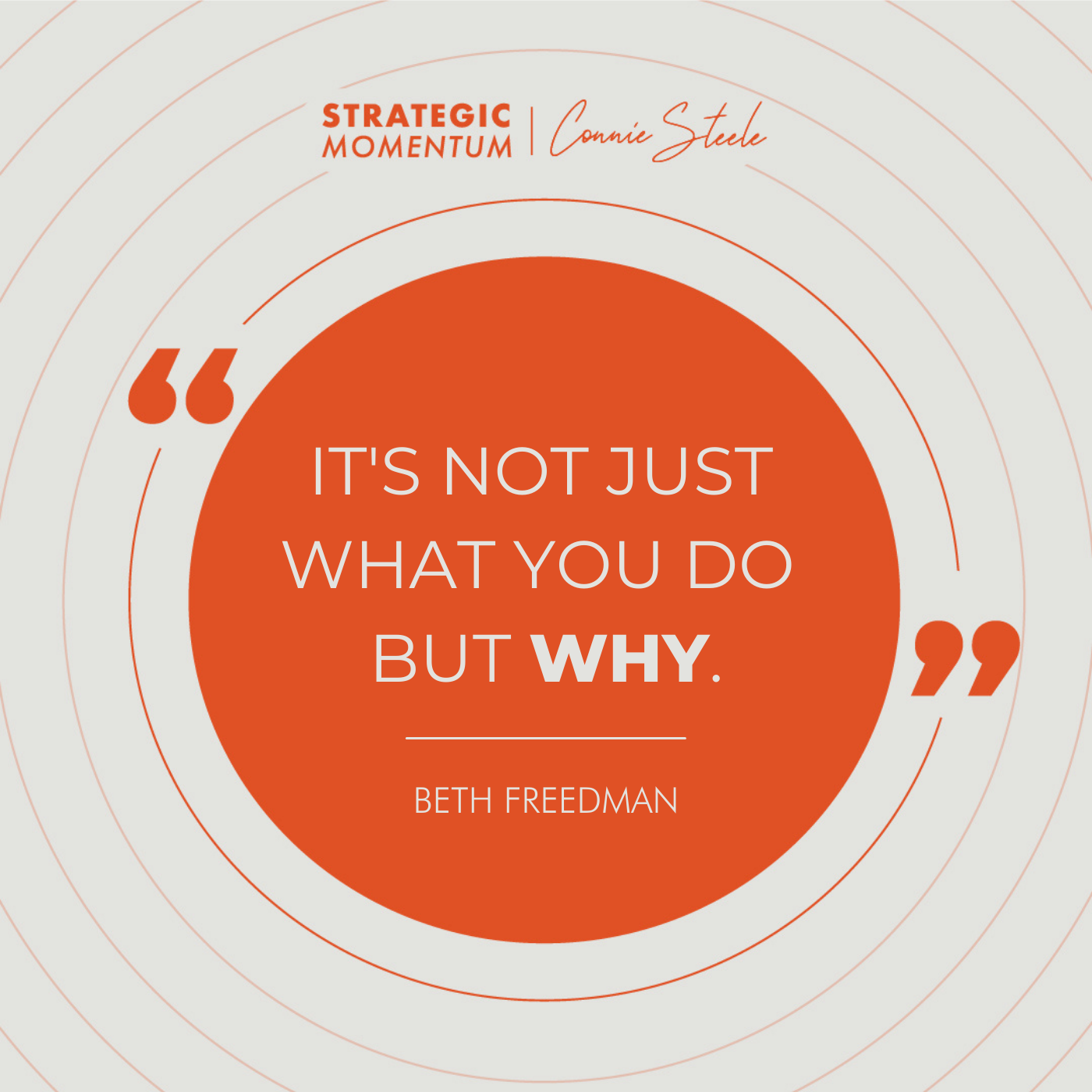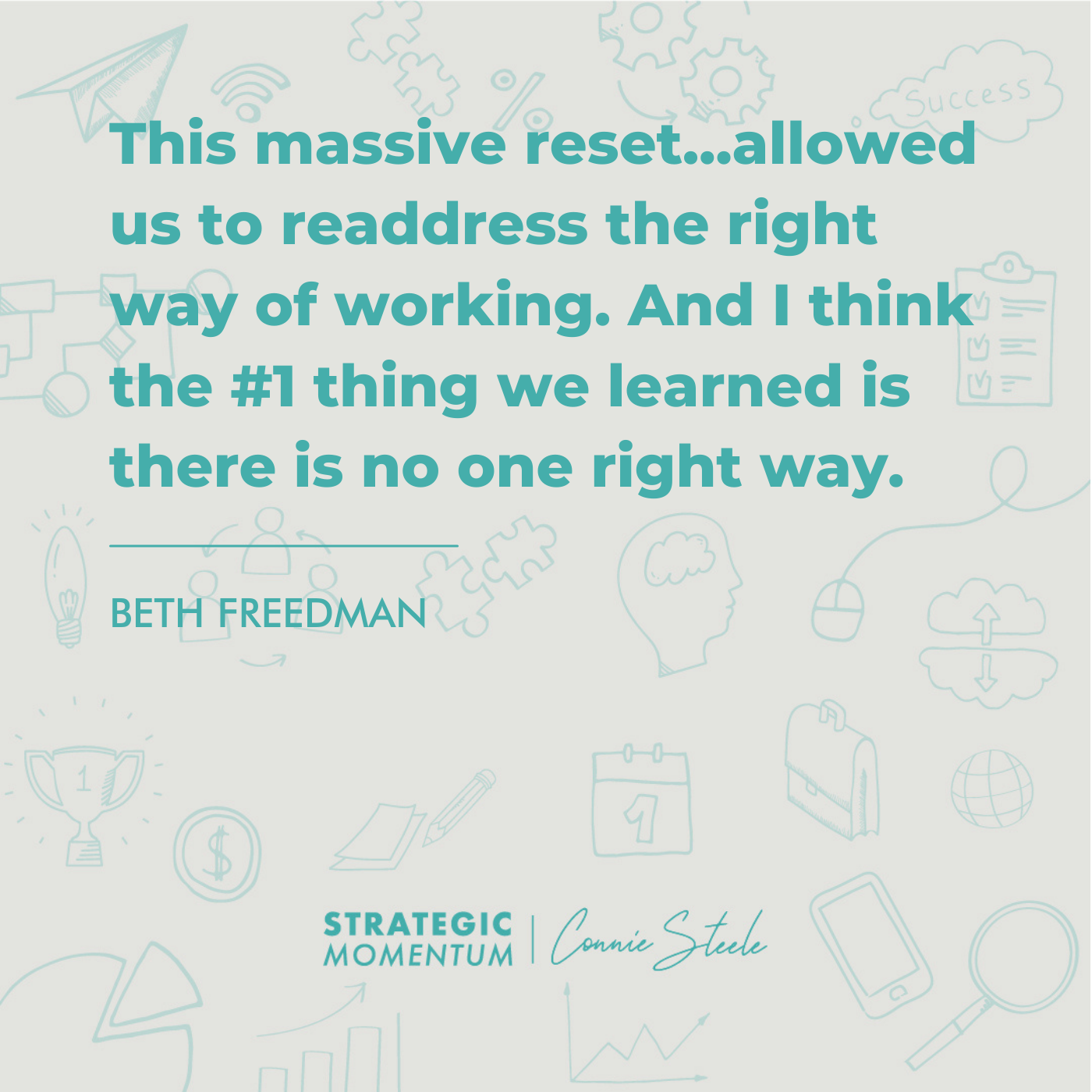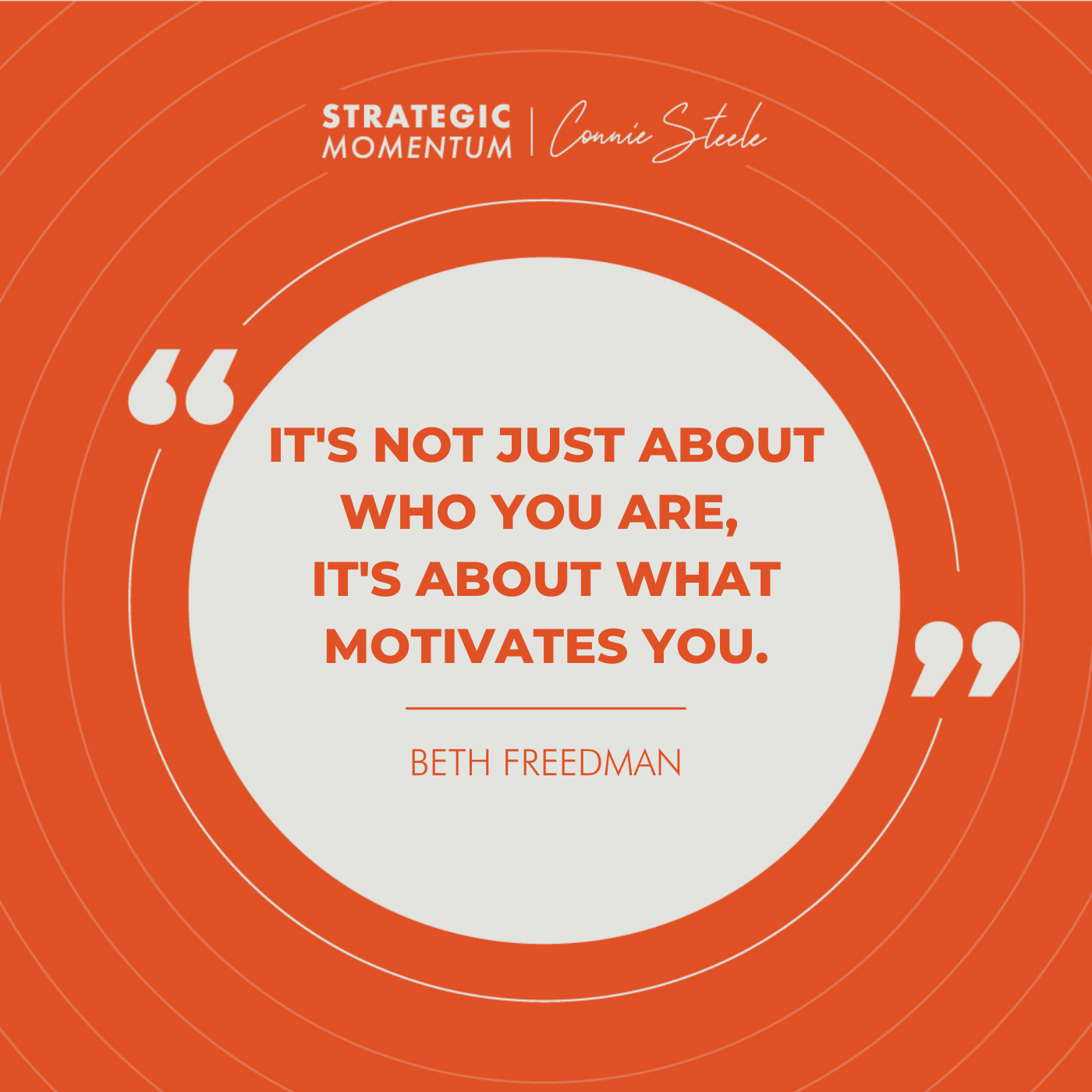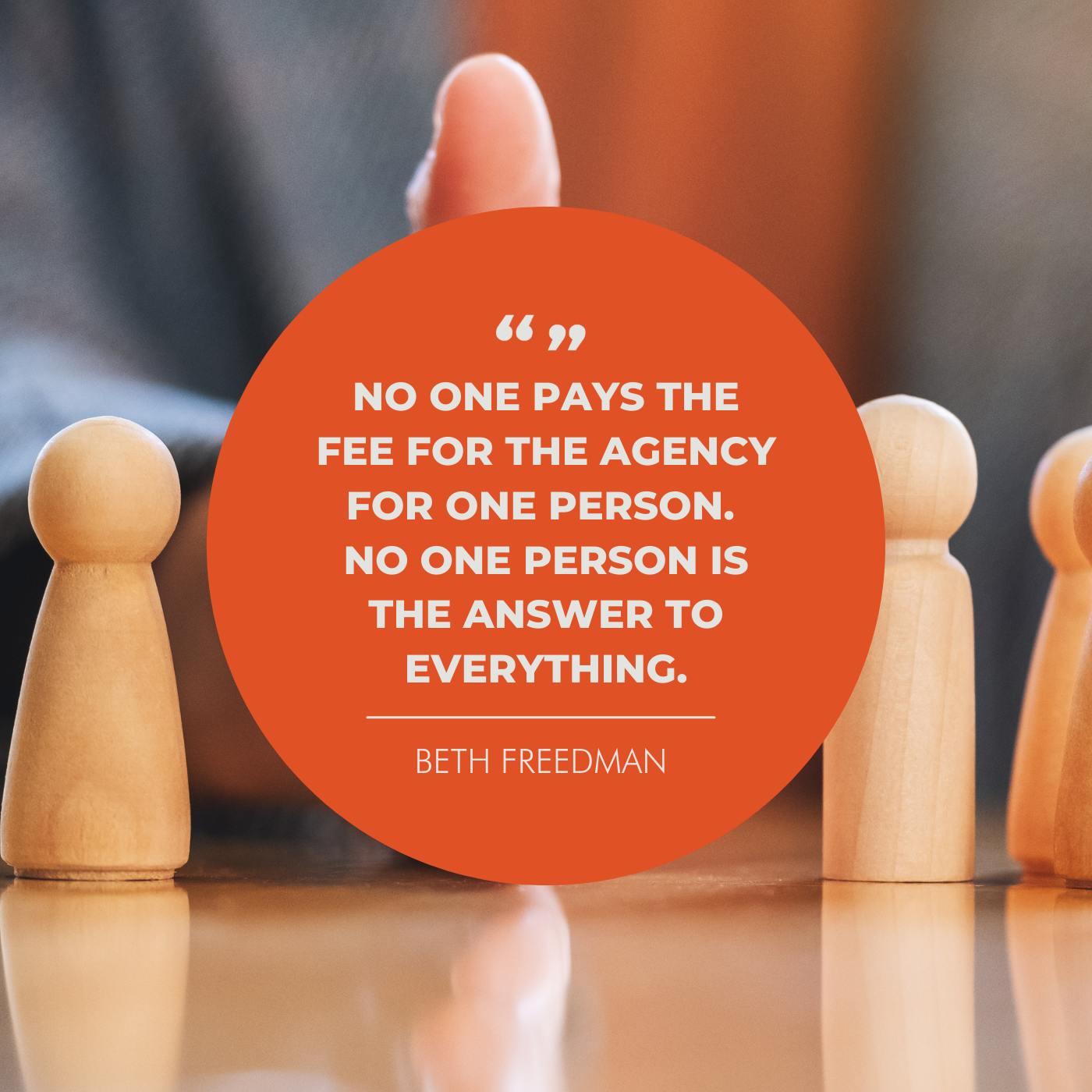Ep. 137 - Leading by Listening: Navigating Workplace Transitions - with Beth Freedman
Find Us Wherever You Listen To Podcasts
“No one pays the fee for the agency for one person. No one person is the answer to everything.”
This is a piece of advice that Beth Freedman, CEO of the media agency Dentsu X, received earlier in her career. It’s the power of a team — the great people that support an organization — that fuels a business’ success. It served her well then, but it was invaluable as a leader navigating COVID-19 and the changes in the workplace that came with it.
In a world in constant transition, Beth believes that figuring out how to best navigate those changes takes a village of people who are there to guide and advise you through the learning curve. Whether you’re navigating your career or leading an organization through a global pandemic, it’s important to acknowledge what you don’t know, practice humility, and be unafraid to ask questions. No one person has all the answers.
The New Workplace: Understanding Your People’s Perspective
COVID completely reset expectations about remote work and employees' ability to do their job effectively without constant supervision. And that reset required Beth to address, like so many other leaders, what the right way of working should be as restrictions eased.
For her, it was important to remove all past assumptions and recognize what worked for her as CEO of a company wouldn’t necessarily be best for this multigenerational workforce. With a range of working styles and expectations, she knew the best decision would need to be grounded in input and perspectives from her employees.
In short, Beth had to listen. She had to listen to understand peoples’ differing motivations, to get into the root causes that drive people’s working preferences. And in the process, she was able to develop a solution, and a way of communicating that solution, that worked for the whole organization.
Her goal was to demonstrate empathetic leadership while still establishing the clear boundaries and structure that were necessary to help people adapt to the transitions and bridge the gaps that existed, and that many people in the organization said they wanted. The end result was a hybrid model which was what works best for their business.
Ultimately this approach led to engaged teams and a more positive work environment, where employees can manage their time and tasks more effectively.
Adapting to the Changing Demographic Landscape
Many leaders are also grappling with what a workplace should look like with four generations working within it. Developing an inclusive environment that can leverage everyone’s potential can be a challenge, particularly when there is unconscious bias towards both older and younger workers.
However, Beth embraces this change, as she believes it brings opportunity for creativity and innovation. When people with different backgrounds and experiences come together, that’s just an opportunity to find novel solutions to old problems.
To best navigate through this people shift however, Beth shares some some additional advice to help foster a better workplace:
Assume positive intent because it’s easy to take someone’s message out of context and make false assumptions, especially through digital communications. So take the time to pause and assess the actual meaning and motive vs. acting on your immediate impulse based on your own triggers. In the end, it’ll alleviate potential conflict and a negative ripple effect.
Set up environments where you are actively listening but not necessarily responding to your team’s feedback/input. This practice is important because it not only shows they matter but gives you the opportunity to really absorb the valuable perspectives that your people share.
In the end, an organization that is predicated on people who are leaning in, who want to excel not just themselves but as a team, is going to be successful. And that takes a leader who is willing to recognize the human experience, who is willing to lead by listening.
Definition of Success:
Developing people so they get better and better to the point where other people wanna hire them yet they think twice before they go. And if they go good for them, as long as they go for good reasons.
Key Takeaways:
It’s the power of a team — the great people that support an organization — that fuels a business’ success. That means that leaders need to gain perspective and context on what benefits the whole of an organization, not themselves or one sub-group within it.
There’s no better way to shepherd your organization through a rapidly changing world than leading by listening. A key part of this process is diving into the core motivations behind people’s preferences.
There is no one right way of working. Different people all have different skills, needs, and priorities, so every workplace needs to look a little different if it’s going to work for everyone. It’s important to remove your own personal assumptions as a leader s part of the process to find the balance that will work for you organizatoin.
When people with different backgrounds and experiences come together, there is an increased ability to find novel solutions to all kinds of problems.
Assume positive intent because it’s easy to take someone’s message out of context and make false assumptions, especially through digital communications. So take the time to pause and assess the actual meaning and motive vs. acting on your immediate impulse based on your own triggers. In the end, it’ll alleviate potential conflict and a negative ripple effect.
Set up environments where you are actively listening but not necessarily responding to your team’s feedback/input. This practice is important because it not only shows they matter but gives you the opportunity to really absorb the valuable perspectives that your people share.
Resources
Connect with Beth: https://www.linkedin.com/in/bethfreedman/
Learn more about Dentsu X: https://www.dentsu.com/uk/en











